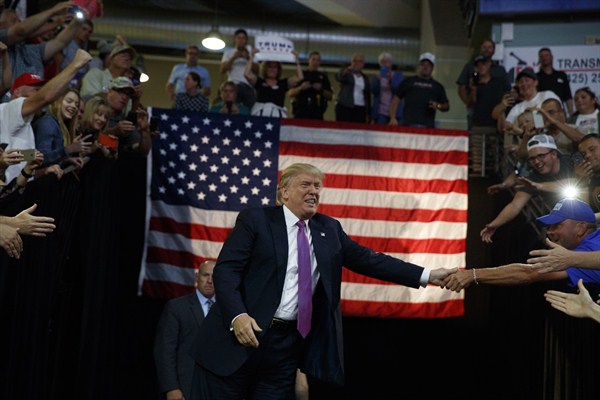Is the world going crazy? Or alternatively, are insane people at the helm, driving major global events? Whether discussing Republican presidential nominee Donald Trump or so-called lone-wolf terrorists, the question of mental sanity has increasingly crept into public discourse on global affairs.
Besides the obvious impossibility of diagnosing a stranger’s psychiatric health from a distance, this trend of leveling charges of mental illness against political or ideological adversaries has another disadvantage: It labels them and anything they say as not worth listening to, essentially cutting off any possible line of communication. And in the case of Trump and his supporters, as well as the young people either radicalized by the self-proclaimed Islamic State or at risk of it, the worst mistake that anyone could make would be to not listen to them.
At the same time, listening, let alone communicating, across these vast divides is complicated by the fact that for all intents and purposes, the two sides do not speak the same language. Whether confronting the kind of closure represented by Trump and his nationalist counterparts across Europe, or the apocalyptic fanaticism espoused by the Islamic State, the language and problem-solving framework of Western technocrats and the globalized, educated and elite constituency they represent simply do not translate, and vice versa.

